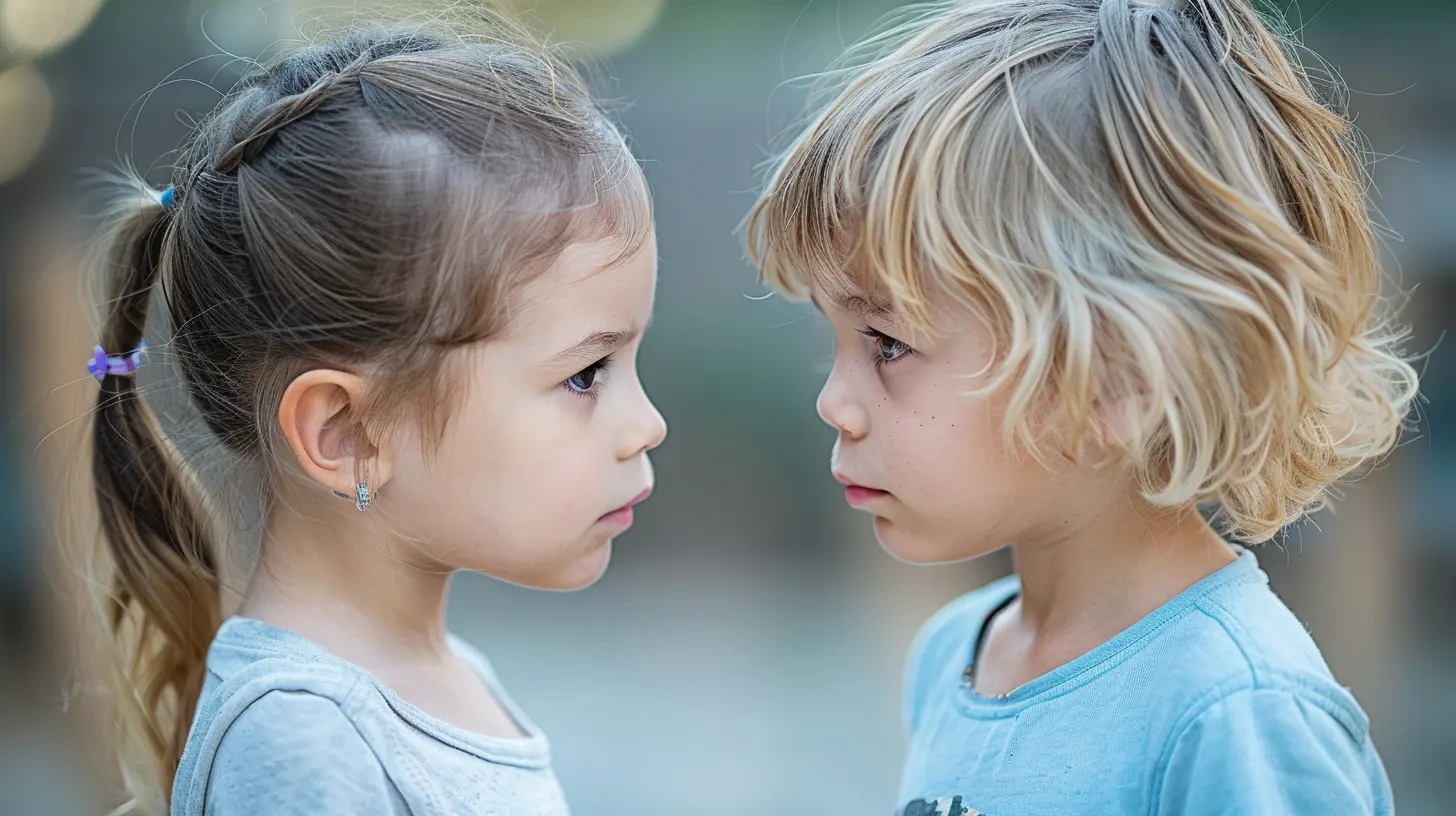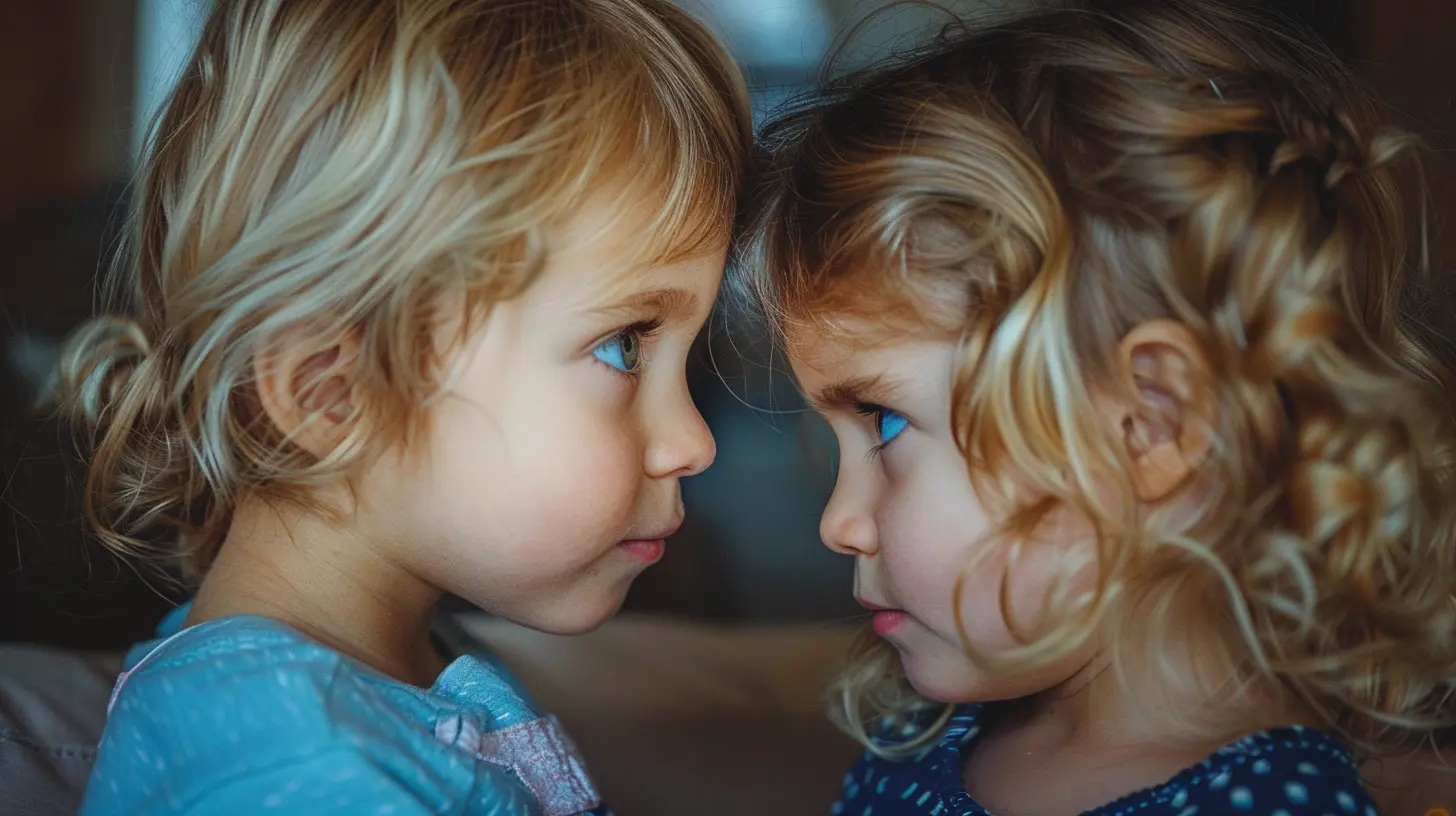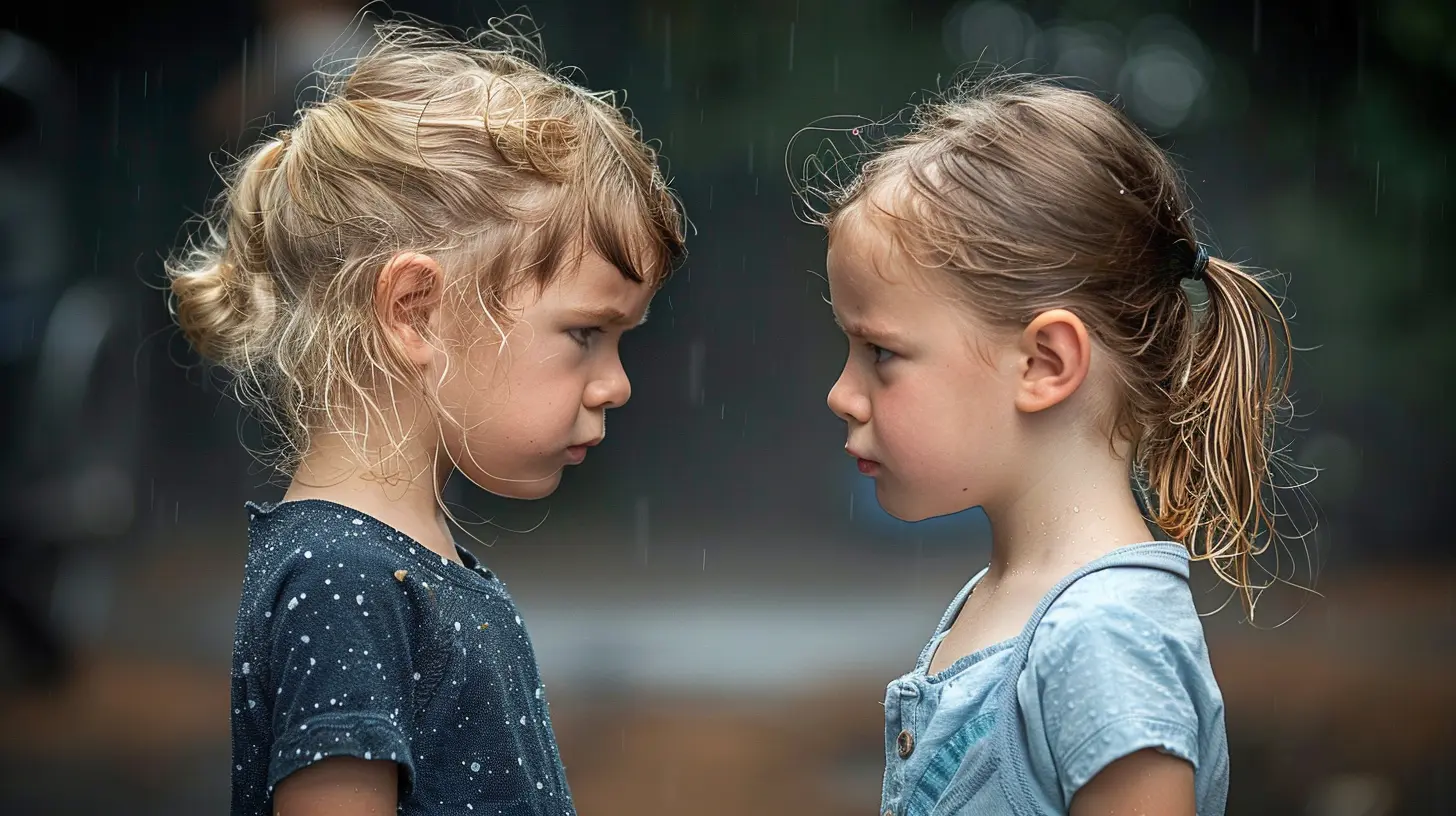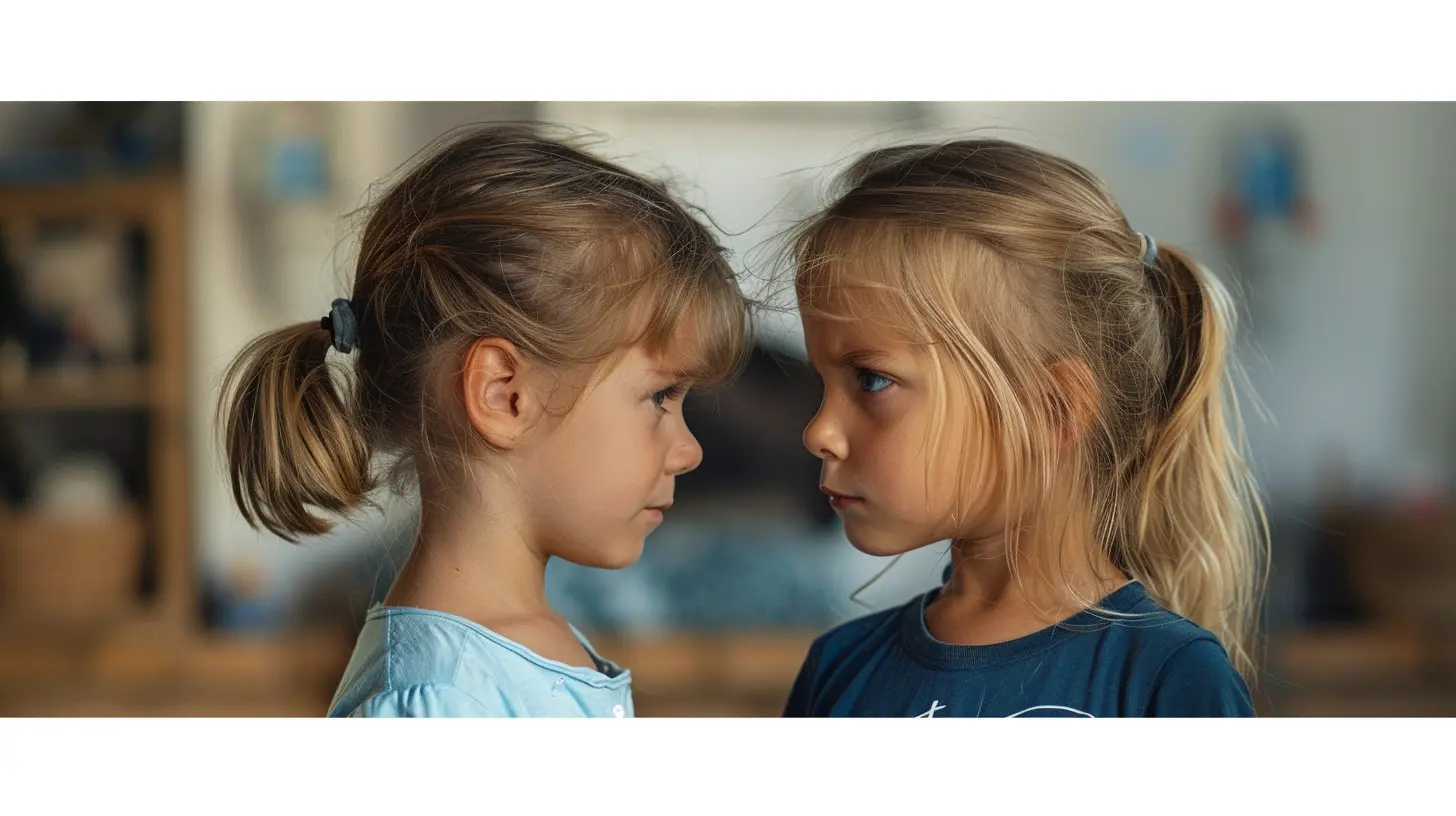Managing Sibling Rivalry: Encouraging Emotional Empathy
26 July 2025
Let’s face it—no matter how picture-perfect our parenting dreams were before kids, nobody imagined themselves playing referee 24/7 in the middle of a toy tug-of-war between their little angels. The yelling, crying, and “Moooom, he touched my stuff!” chorus can leave even the calmest parent reaching for the cookie jar (or something stronger).
Sibling rivalry isn’t new. It’s been around since Cain and Abel, right? But while it’s pretty much guaranteed that siblings will fight, how we, as parents, handle those squabbles can shape the kind of relationship they’ll have not just as kids, but for life.
And here's the twist—what if we told you the secret sauce to turning sibling conflict into connection is emotional empathy?
Yep. That sometimes-elusive skill of understanding and sharing another person’s feelings. Sounds a bit high-level for toddlers or tweens, but stick with me. Teaching empathy isn’t just possible; it’s essential.
So grab a coffee (or hide in the bathroom with your phone, we won’t judge), and let's dive into how you can tackle sibling rivalry head-on by raising emotionally aware and compassionate kids.
What Exactly Is Sibling Rivalry?
Sibling rivalry is simply the competition, jealousy, fighting, and bickering that occur between brothers and sisters. It can pop up because of age gaps, different temperaments, attention-seeking behaviors, or even that age-old debate: who got the bigger slice of cake?Let’s be real—siblings often fight because they feel unheard, unseen, or misunderstood. Sometimes they just need a bit of your attention. Other times it’s deeper—feeling less important, insecure, or unfairly treated.
Sound familiar?
The key here isn’t getting rid of the fights altogether (sorry), but using them as teaching moments to strengthen their emotional intelligence.
Why Empathy Should Be Your Parenting Superpower
Empathy is the ability to feel what someone else is feeling. It’s not just “being nice” or saying sorry on cue. It’s more like putting yourself in someone else’s emotional shoes, even if you don’t agree with their actions.When kids learn to empathize with their siblings, their fights shift from “Me vs. You” to “Wait, how did that make you feel?”
Pretty powerful, huh?
And here's the cool part: empathy is teachable. It’s like a muscle—if you use and train it regularly, it strengthens over time.
Common Triggers of Sibling Rivalry
Before we dash into empathy-building, it's worth understanding what's lighting the match. Some typical causes of rivalry include:- Competition for parental attention
- Perceived favoritism (even unintentional!)
- Differences in age, interests, or personality
- Jealousy, especially when a new sibling enters the scene
- Boredom or lack of structure
- Desire for independence
Now that we know what we're dealing with, let’s break down how to navigate these squabbles with empathy-driven parenting.
Empathy Starts With You: Model It Like a Boss
Let’s be blunt: kids won’t learn empathy because you told them to be kind. They learn it because they saw YOU be empathetic—again and again.Your reactions in day-to-day life are your child’s emotional masterclass. That moment when you say, “Wow, you look frustrated. Want to talk about it?” instead of “Stop crying!”
Or when you calmly explain why you’re upset instead of exploding like a volcano. That’s empathy in motion.
Here’s how you can model empathy:
- Speak your feelings out loud (e.g., “I’m feeling overwhelmed because I have a lot going on today.”)
- Show compassion to others, including your partner, pets, neighbors, and yes—even your kids during meltdowns.
- Validate their feelings, even the “ugly” ones.
The more naturally you express empathy, the more your kids will soak it in like emotional sponges.
Respect Their Feelings, Even During Chaos
Ever wanted to scream, “Why are you two always fighting over nothing!?”Try swapping that with curiosity. Instead of brushing off the problem, lean into it:
- “Sounds like you’re both really upset. What’s going on?”
- “Can we figure this out together?”
- “How do you think your brother felt when that happened?”
Acknowledging emotions doesn’t mean condoning bad behavior. You can still hold firm on boundaries while showing you understand where they’re coming from.
You’re not just solving today’s fight. You’re teaching them how to understand and respect each other’s emotional worlds. That’s gold.
Teach Kids the “Feel-Think-Do” Pattern
Here’s a kid-friendly formula that sneaks in emotional empathy while still solving real conflicts:1. Feel – Ask them to name the emotion they’re feeling. “Are you mad? Hurt? Left out?”
2. Think – Encourage them to think about how their sibling might be feeling too. “How do you think she felt when you grabbed the toy?”
3. Do – Empower them to come up with a solution. “What could you do to make it better?”
This simple pattern helps kids slow down and reflect, instead of reacting instantly with a slap or a scream.
Practice it often, and soon they’ll start solving fights without your help (say what?!).
Promote Teamwork Instead of Competition
If everything in your house is framed as a race—who’s faster, who’s smarter, who eats all their vegetables first—you’re unintentionally feeding rivalry.Instead, highlight opportunities for cooperation.
- Give them joint missions: “Can you two work together to build the tallest Lego tower?”
- Celebrate team wins: “You both helped clean up—what a dream team!”
- Pair them up for small tasks so they learn to rely on each other.
When siblings see themselves as allies instead of rivals, magic happens.
Be the Referee, Not the Judge
It’s tempting to swoop in and declare who’s right and who’s wrong. But playing judge usually backfires.Why? Because it can make one child feel like the “bad kid” and the other the “favorite,” even if that’s not your intention.
Instead, try mediating. Let both sides share their version of what happened, then guide them toward a peaceful resolution.
Use open-ended questions like:
- “Why do you think this turned into a fight?”
- “What could you do differently next time?”
- “How might your sibling feel right now?”
You’re showing them how to navigate conflict, not just punishing them for having it.
Create Calm-Down Corners (Not Time-Outs)
When emotions run hot, both kids need a chance to cool off. But forget the classic punishment-style time-outs.Instead, create a chill-out zone with cozy pillows, books, fidget toys, or even calming music. Teach them that taking space isn’t failure—it’s self-regulation.
Let them know it’s OK to walk away, breathe, and return when they’re ready to make things right.
You’ll be giving them a life skill that’s way more powerful than forced apologies.
Celebrate Empathy Moments
Catch empathy when it happens and shout it from the rooftops.- “I saw how you checked on your sister when she was sad—so kind!”
- “Thanks for listening without interrupting. That showed real respect.”
- “I noticed you shared your snack. That was such a thoughtful thing to do.”
When you praise specific behaviors instead of just “being good,” kids are more likely to repeat them.
Think of it like watering a plant. The more attention and sunshine you give, the more it grows.
Be Mindful of Comparison and Labels
We’ve all said it at some point: “She’s the calm one” or “He’s the dramatic one.” Seems harmless, right?But these little labels can stick like glue and mess with sibling dynamics. Kids start to internalize roles they think they’re supposed to play.
Instead, focus on effort, not traits.
Instead of: “Your brother is always so neat,”
Say: “I noticed you worked really hard to keep your room tidy today.”
Everyone feels seen, and less comparison means less conflict.
When to Seek Outside Help
If sibling rivalry feels intense—like constant physical fighting, emotional bullying, or if one child seems consistently traumatized—it may be time to loop in a professional.There’s no shame in asking for backup. Family counselors, child psychologists, or parenting coaches can offer strategies tailored to your kiddos.
Think of it as adding tools to your parenting toolbox. Sometimes we all need a few extra wrenches.
Final Words: You're Not Alone
Sibling rivalry can feel like an unending war zone some days. But underneath all the squabbles and sass, your kids really do care about each other—they just need help learning how to show it.And that’s what empathy’s all about.
By building emotional empathy at home, you're planting seeds that will grow into lifelong bonds—ones that can weather fights over toys, teenage eye-rolls, and even who gets the last slice of pizza.
So hang in there, breathe deep, and keep modeling the empathy you want to see.
Because when kids learn to relate, understand, and really care about each other’s feelings? That’s the true win.
all images in this post were generated using AI tools
Category:
Emotional DevelopmentAuthor:

Maya Underwood
Discussion
rate this article
1 comments
Yasmine Powell
This article beautifully addresses the challenges of sibling rivalry while emphasizing the importance of fostering emotional empathy. By teaching our children to understand each other's feelings, we can create a more harmonious home. Thank you for sharing such valuable insights to help us navigate this journey!
August 3, 2025 at 4:38 PM

Maya Underwood
Thank you for your thoughtful comment! I'm glad you found the article helpful in addressing sibling rivalry and fostering emotional empathy.


